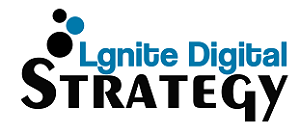The continued improvement in artificial intelligence leaves us in awe at the value that can be derived from the enormous flow of business data that enterprises amass over time. It is not sufficient to allow the data to accumulate and be dispersed over devices, networks, and other data storage systems. Many businesses today use data archiving tools to further organize their data. Organizations are beginning to understand the significance of strategic data archiving such as ArchiverFS even if data is quickly replacing gold as the new precious metal.
Data Archiving
Data archiving pertains to the process by which an organization or a business comes up with long-term archive of its vital data for purposes such as the following:
- compliance requirements
- governance of information
- management litigation
- reducing the need for storage
Archiving data can be seen as a crucial component of record management. It primarily relies on efficiently managing corporate documents over their entire existence. It serves as a defensive strategy for an organization or businesses as such demonstrate compliance and shield businesses from lawsuits and failed audits, but also as huge information and business resource centers. When assessing archiving services, you must establish what you need to preserve so you will be able to choose the most cost effective and practical solutions. A company’s data storage plan must include long-term data archiving as a key component. If it’s too costly to run a brick-and-mortar data archive, consider hiring a data archiving firm like Mltek software.
What are the options?
Tape Archiving
Due to its affordability and durability, tape storage has previously been the preferred archival storage method. With the help of innovations like strong deduplication, algorithms (compression type) and quick data retrieval techniques, tape’s storage capacity has increased and it has remained an effective archiving medium. Although despite developments that the media (electronic) is experiencing right now, most CIOs are still interested in tape storage, particularly for long-term data archiving.
Cloud Computing
This type of archiving frequently uses cloud technology because of these reasons: affordability, capacity, availability, and ease. It can archive different types of data including electronic and non-electronic data with the use of the most recent technology. When speaking with any vendors, it’s important to be aware of what has to be archived as well as your storage, access, and the requirements for retrieving data.
What to keep in mind?
Determine your needs for archiving
The majority of firms contain two different categories of data: regularly utilized data that might deem important in the future as well as everyday operating data, databases, and other material. Archiving is now a necessary task for space and financial reasons as data sets continue to increase in size and complexity.
- Identifying whether there is a genuine business requirement for data archiving for long-term purpose is the initial step.
- Check any formal data backup policies and programs to see whether the prerequisites for adding a data archiving service are met. Data that has to be archived may be found through a business impact analysis.
- Set an inquiry with the company leader about any potential storage needs for resources.
- Establish the categories of data that needs to be archived as well as the kind of storage needs, format of data, the need for ease of access, access requirements, and retention period.
All audit and compliance needs will be outlined in the policy governs data storage and archiving, which will also guarantee that there is a uniform procedure for data archiving and retrieval. There is also a need to clearly specify the conditions under which and how to remove archived data.
Evaluation method
Make a list of potential prospects after conducting research on data archiving service providers. A wide range of long-term archiving options are offered by reputable vendors and the price of their services may be in line with that capability. Consider tiny, boutique sellers who can offer suitable products without digging a hole in your pocket, especially if you have a tight budget. Make a request for proposal for you to know more about the chosen company and their products. Include any security needs that would call for archival data to be encrypted while being transported to the storage location, and make note of the necessity for encryption at rest. Also, you should determine any additional needs you might have for being able to retrieve any data that are archived for emergency reasons.
Contact all references that have been provided when the offers are received, and weigh pricing possibilities to find the best fit.
The next step is to decide how you want to proceed. It could be through the form of a pilot program or to proceed immediately with a full scale program, but you can employ a few sets of data, at least for a start.
Examples of data archiving service providers and potential prices
The amount of data to be archived, the repository type (cloud, tape, or disk), the accessibility requirements, the anticipated frequency of access, the file format, the archival software, and redundancy options are the main determinants of long-term data archiving costs. Cost ultimately depends on how much storage is required over a certain time frame. You can expect a few hundred dollars to thousands of dollars depending on the type of archiving needs and the storage capacity. The rule of the thumb is the higher the storage needs the more expensive the cost will be. The length of contract also has something to do with the overall cost of data archiving.





